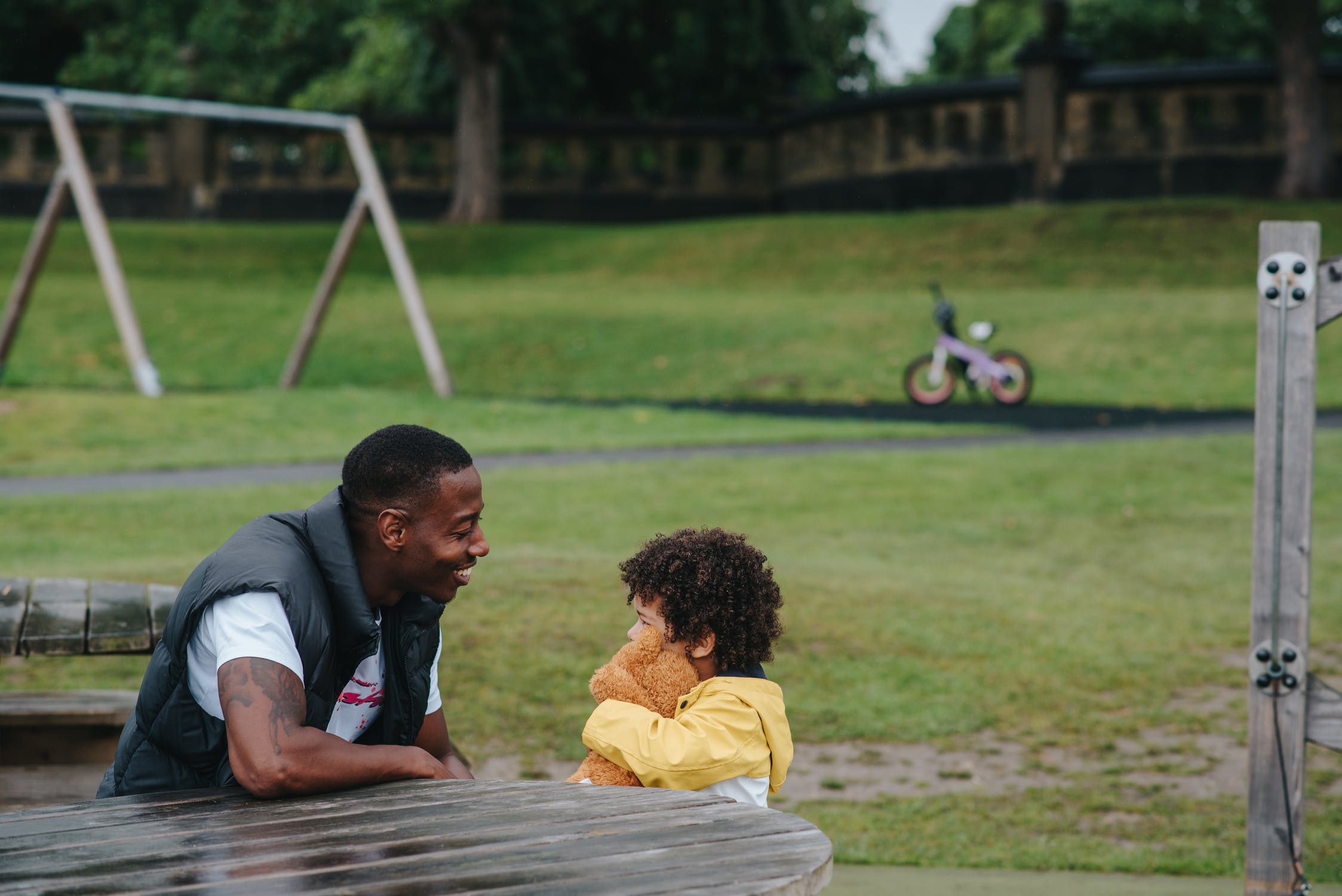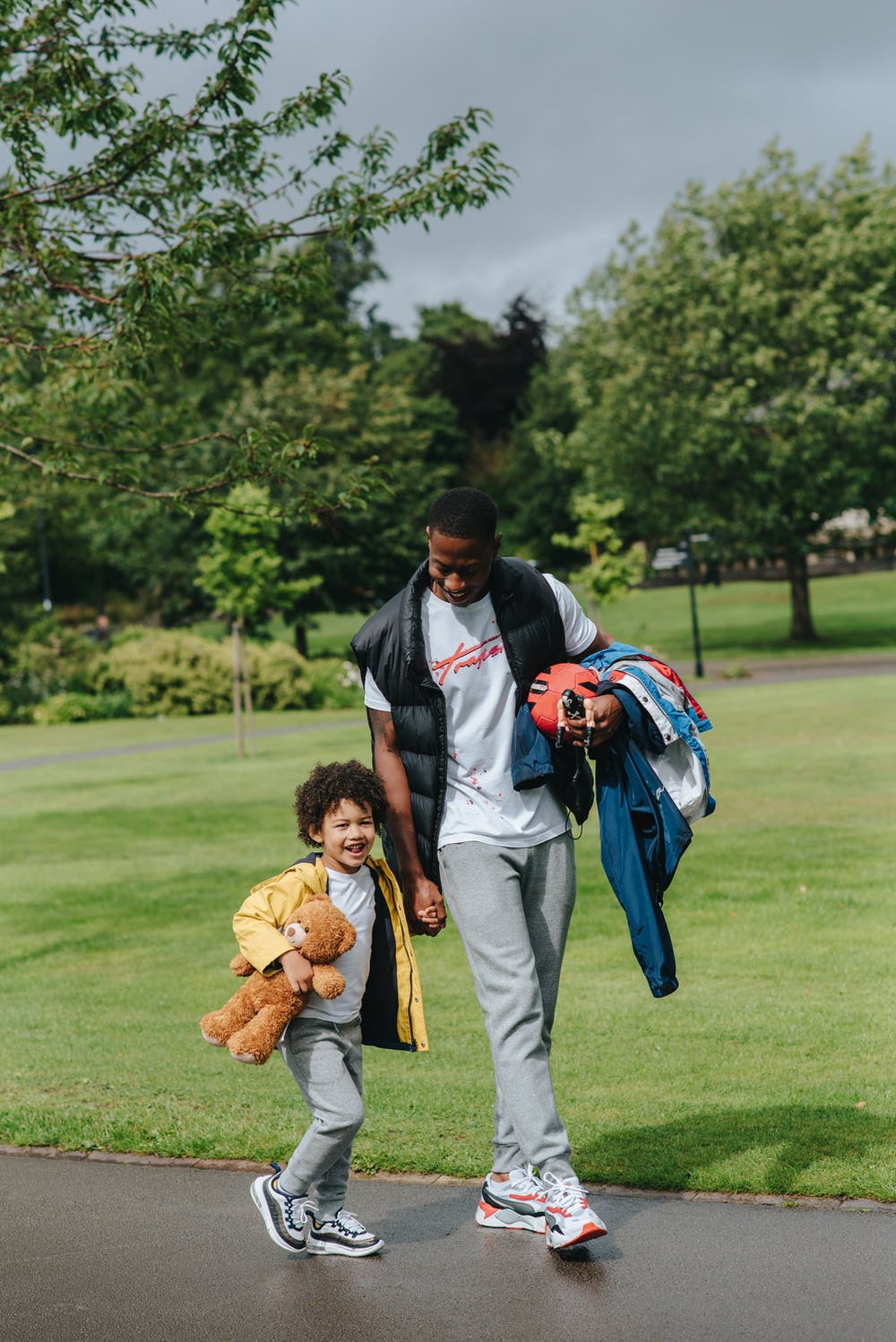Parenting Conversation: Parenting Styles
27th September 2021
STYLE IS EVERYTHING : PARENTING METHODS
Parenting was much easier when I was raising my non-existent kids hypothetically!
Whether we're willing to admit it or not, we judge people's parenting styles before we have kids of our own. It may not even be conscious. You're at the supermarket, and you see a child having a monumental tantrum until the father gives in and buys chocolate for their child. Or you glimpse a mother breastfeeding a 5-year-old or another smacking their daughter's hand when she touches her new, white dress. Whichever styles we'd never do are the ones we judge. But then you have kids, and you realize with shock that it's the most challenging thing in the world. Thankfully, there's expert research that can guide us to be the best parents we can be.
Let's look at the four most common styles; you might recognize yourself in them!

AUTHORITARIAN
(Think: Army Jacket and Steel-capped Boots)
There's an entire generation that experienced this type of parenting. Some of us had excessively strict and punishing fathers and were scared to make one wrong step. "Children are to be seen, not heard" is one of the dictums you might remember from your own childhood. Just one glance from an authoritarian parent is enough to instill fear in the child and quite often keeps the kids on a very straight, rigid path. But generating extreme anxiety in our children can produce equally intense results: pious and ideological or fantastically rebellious. Placing such rigidity on a child can mold them into a person who experiences great shame for wanting to enact their own needs or desires. Inversely, a child can become rebellious and hostile, shunning and breaking the rules even into adulthood–there's a multitude of literature that connects authoritarian parenting and delinquency. Certainly not something we would ever want for our kids.
PERMISSIVE:
(Think: Flowing Tie-Dyed Skirts)
We've all been there. Times of sheer exhaustion and frustration when we choose the path of least resistance. "You want a new toy?" Sigh. "Fine." "You're not ready for bed?" Sigh. "Okay." The list goes on and on. It's completely understandable that, on the odd occasion, we let boundaries stretch a little. But when permissive parenting becomes pervasive, you might run into trouble. Laissez-faire parenting can present itself when the parent wants to be the child's friend, to have their son or daughter like them. But the hard truth is, we're not their friend. Our job as parents is to shape and guide them into being the best adult humans they can be. Without consequences and boundaries, children are frequently seen to display behavioral and academic issues. They do not like being told what to do. Research suggests that long-term health issues like obesity and tooth cavities rate highly in excessively lenient families. Permissive parenting might seem more manageable in the short term, but we may be creating a rod for our own back. And worse–theirs!

UNINVOLVED:
(Think: Minimalist Japanese Warrior Pants)
Attention all parents: attention is everything! What’s your child's favorite color or subject at school? Is Bethany still your child's best friend? When was the last time you sat down with your kids and made art or played soccer? If you don't know the answer to these questions, you might just be an uninvolved parent. We're not talking about going to work during the day; uninvolved parenting isn't about shaming anybody for taking care of their families. It's about choosing to be present and available to our little ones when we’re with them. This way, we can nurture our child's interests and guide them to make good choices. We can't do any of this if we're not listening and engaged. Uninvolved parenting can have debilitating consequences into adulthood. Emotions such as sadness, apathy, and resentment may permeate their everyday life. We will make the wrong parental decision a million times, but giving our children our time, presence, and availability is the most spectacular thing we can provide.
AUTHORITATIVE:
(Think: Crisp White Shirt and Tracksuit Pants)
Here things get interesting because the authoritative style is largely considered, by experts, to be the best parenting style of all. It manifests higher degrees of happiness, personal responsibility, altruism, success, and excellent decision-making abilities. Impressive. So what is authoritative parenting? In a nutshell, it's positivity between parent and child. It's giving firm boundaries and consequences but explaining those boundaries. Authoritative parents consider their child's opinions, praise good behavior, instill discipline, and validate their feelings and experiences. Sounds easy, right? We wish. It's as demanding as it is fun and fulfilling, but if the results are anything to go by, the challenge is more than worth it!

Some further terms that you may have heard flying around in parenting circles should also be mentioned.
- ATTACHMENT: Think about the mother breastfeeding the 5-year old we spoke about earlier. Close contact, maximum empathy, providing constant care. Touch is very important in attachment parenting.
- HELICOPTER: The sounds of a mother whooshing in to coddle their child and protect them from every conceivable pain. Hovering over children with intensity and being overly involved in their lives.
- FREE RANGE: Pretty much a helicopter mother’s worst nightmare! This style encourages complete freedom, promotes independence, and has very limited supervision.
- CONSCIOUS: Parents that seek to understand themselves, their past, present, and future. Basically a style that focuses more on the parent than the child, and how this reflection and mindfulness can drive parenting choices.

THE PAST IS THE PRESENT. THE PRESENT IS THE PAST
The complication with choosing our parenting style is that we’re impacted by the style of our own parents–like it or not. And again, sometimes it's not even conscious! This is why we need to think about our childhood and what we do and do not want to bring into our approach. Did your mother pressure you to dance and to be perfectionistic? Were you screamed at as a child? Did your parents encourage you to pursue your dreams? Writing down the answers and associated feelings to these questions can help. Once we identify what it is, exactly, that affected us, we can see how these emotions may be filtering into our own parenting choices.
Do any of the following infiltrations resonate?
IMITATE NEGATIVE REACTIONS AND OVERREACT:
"Now just look at what you've done. You’re acting like an animal!" Over minor issues and spilled milk?
PROJECTING: Do you recreate yourself through your child? "Oh, you are just like me, exactly the same. You are going to be a doctor someday, just like your mother."
CRITICAL: Childhood's full of criticism can be perpetuated through generations. "You will never be good enough to go to university. Overweight and lazy people get nowhere in life."
Childhood experiences can cause psychological triggers in adulthood, and despite our best efforts, we can react to these triggers in harmful ways toward our children. This is why it’s essential to reflect on our growing years with both a critical and sympathetic mind. Parenting styles are a minefield! Supporting rather than judging one another is vital to getting through this triumphantly. And a little help from the experts. Perhaps the most essential key when reflecting on our past and choosing a style is to have compassion for ourselves.
And with compassion for ourselves, we’ll surely have compassion for our children.
Have a question for MC?
Email us at askmc@mariechantal.com

Join Us On Spotify
Browse MC's recommended playlists for bathtime, playtime and then when baby has gone to bed, grown-up time.



